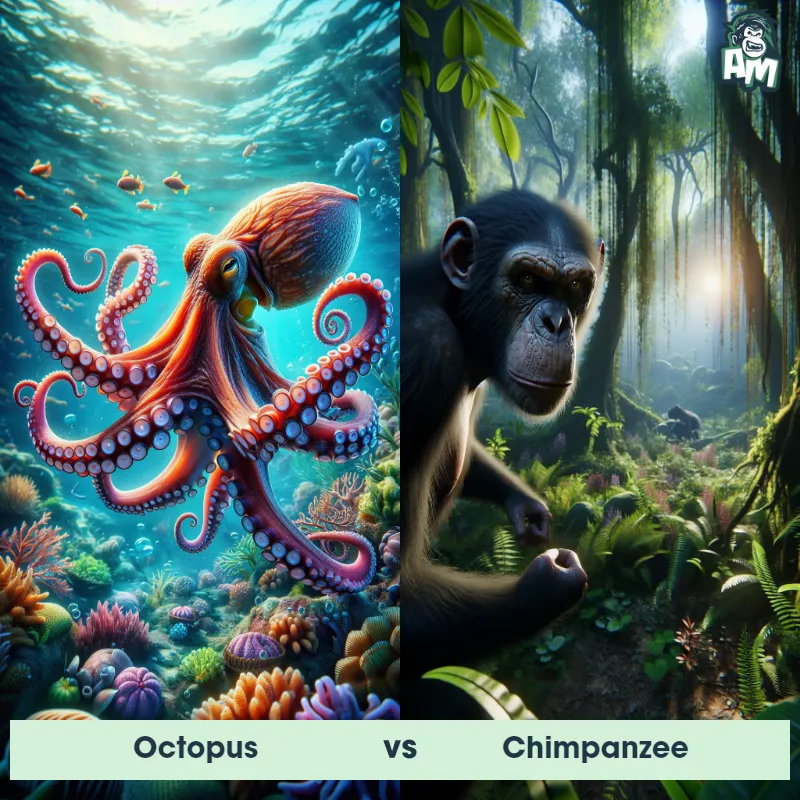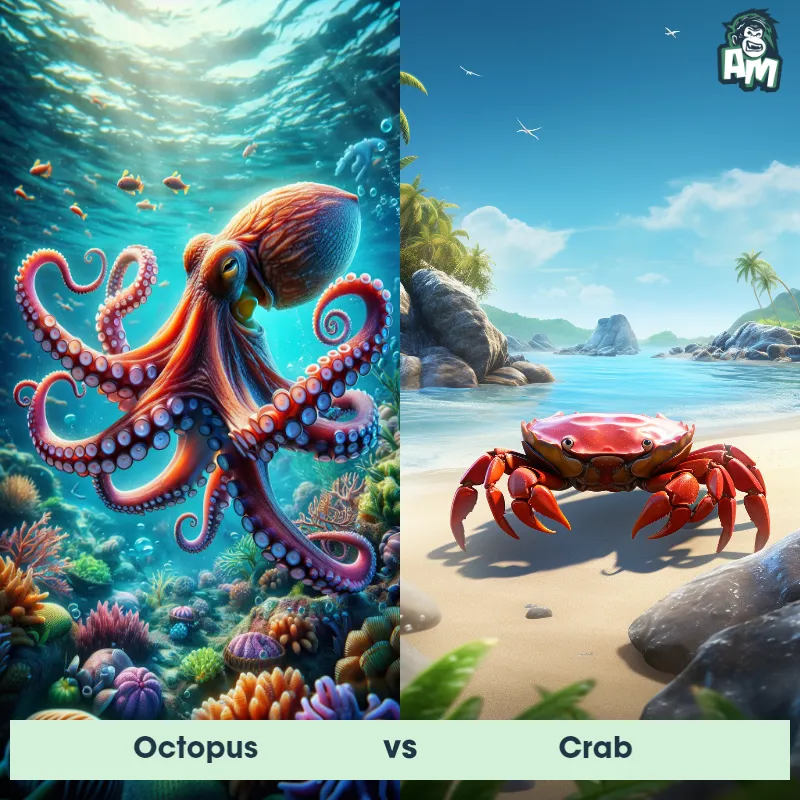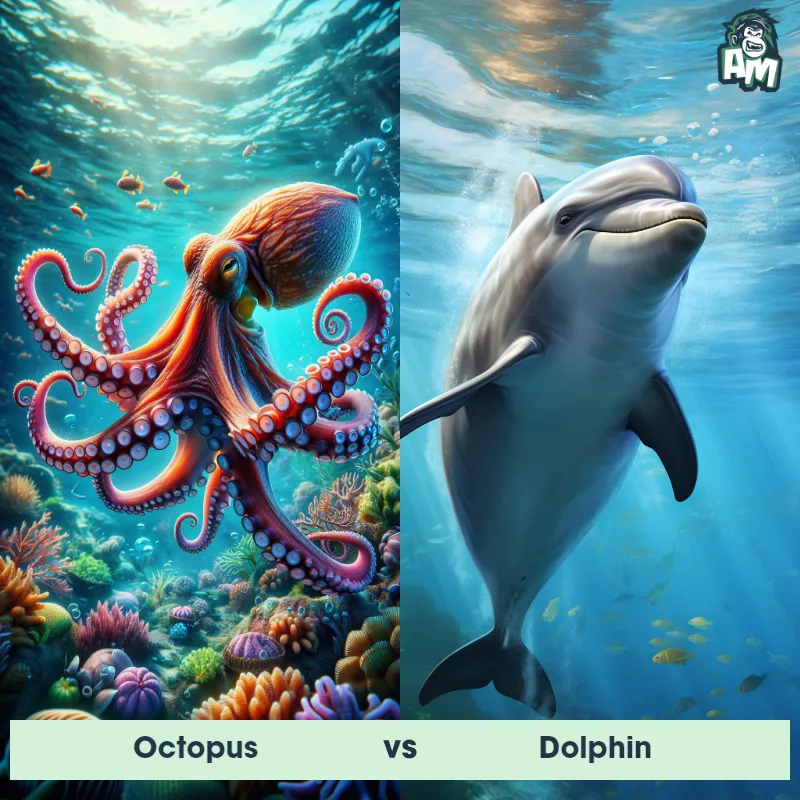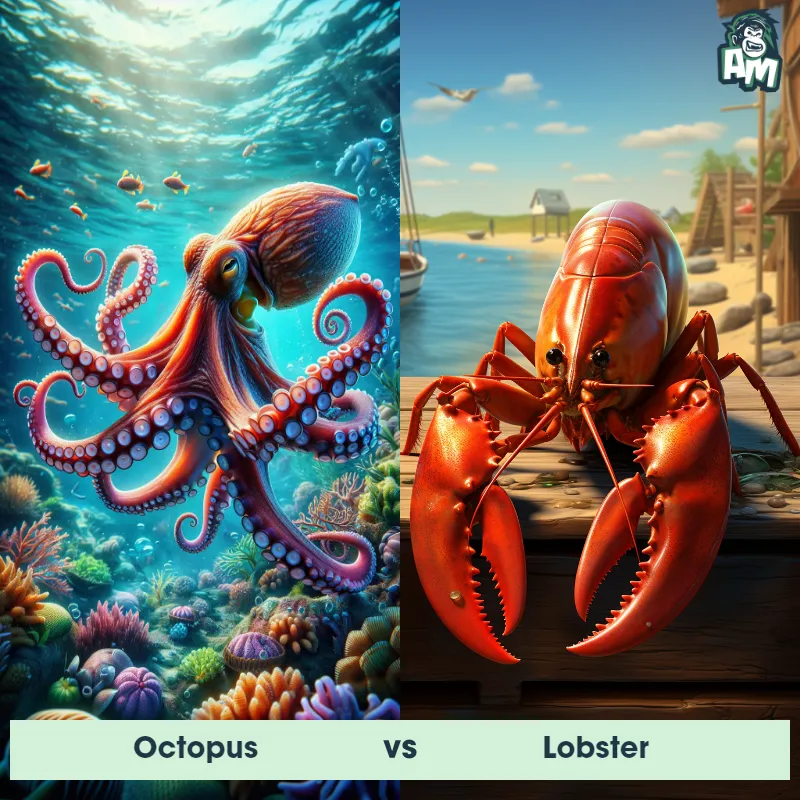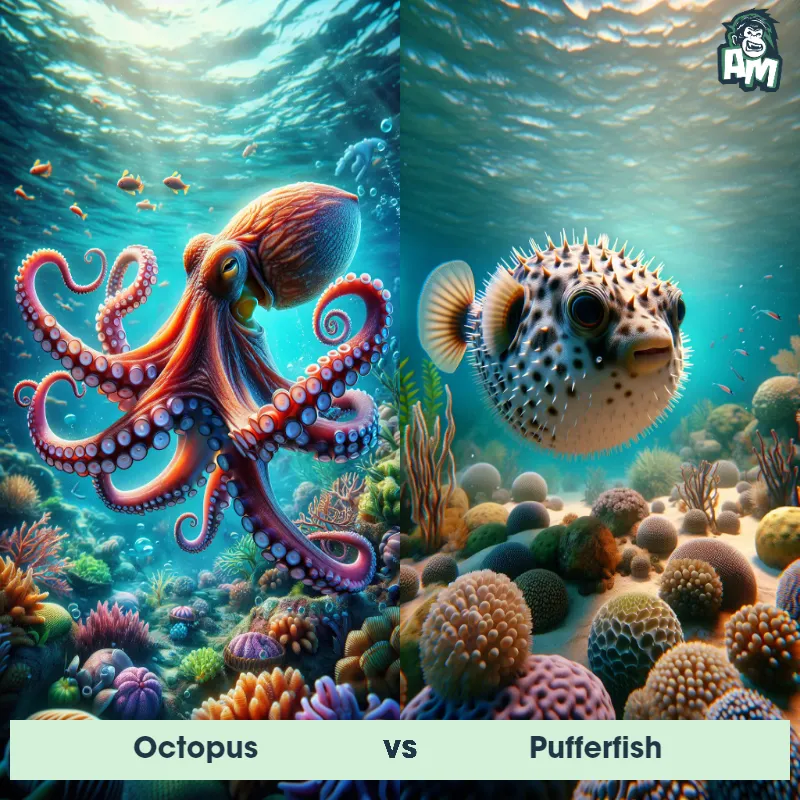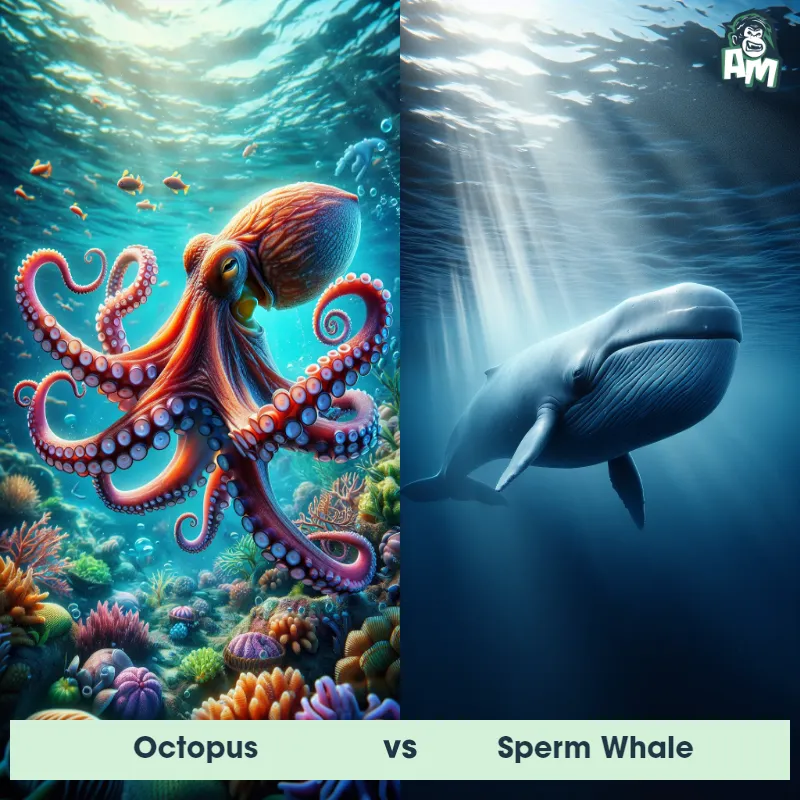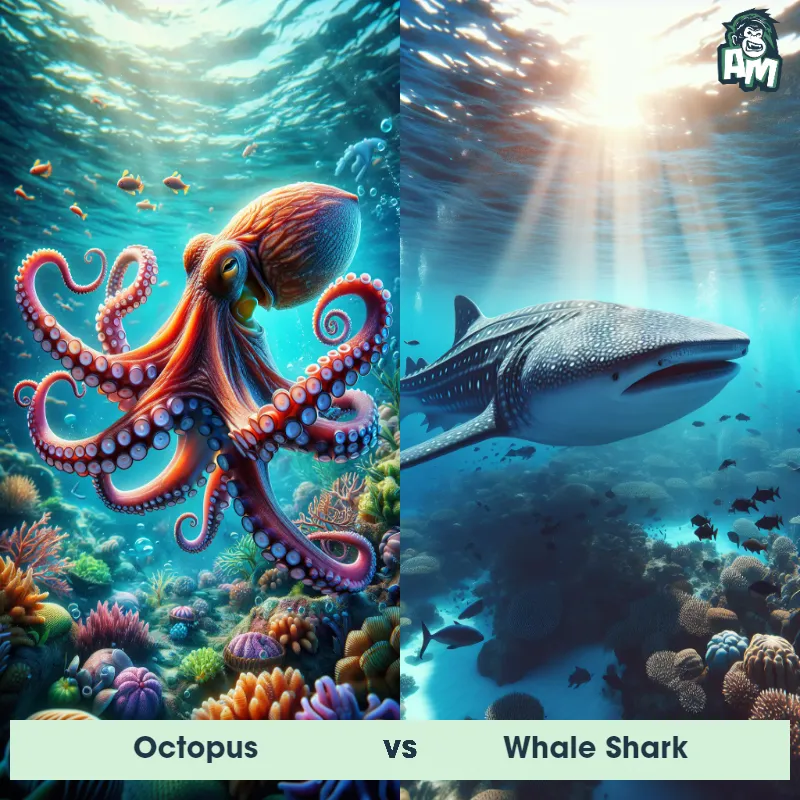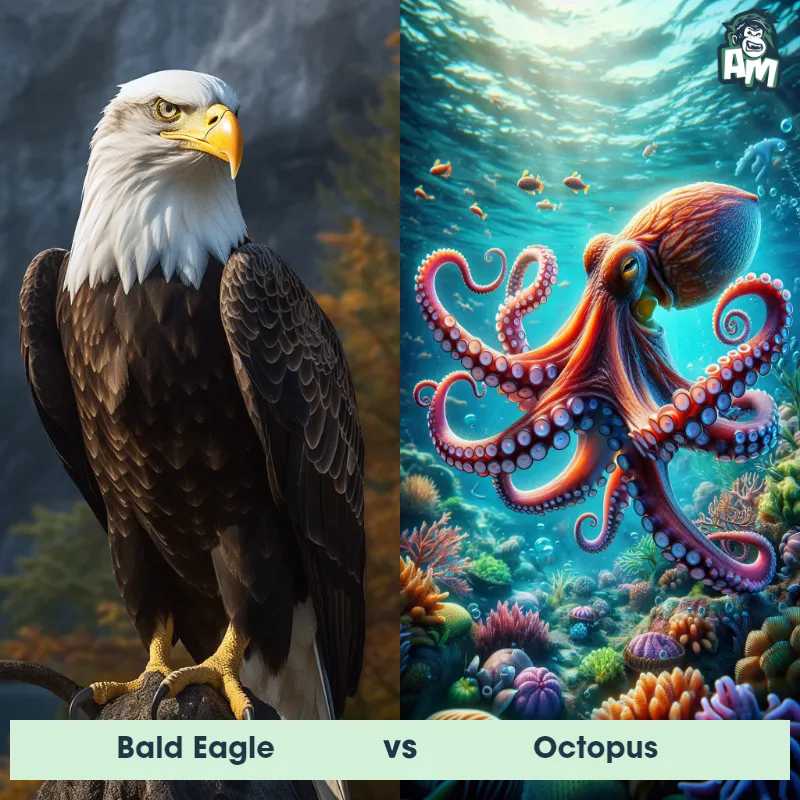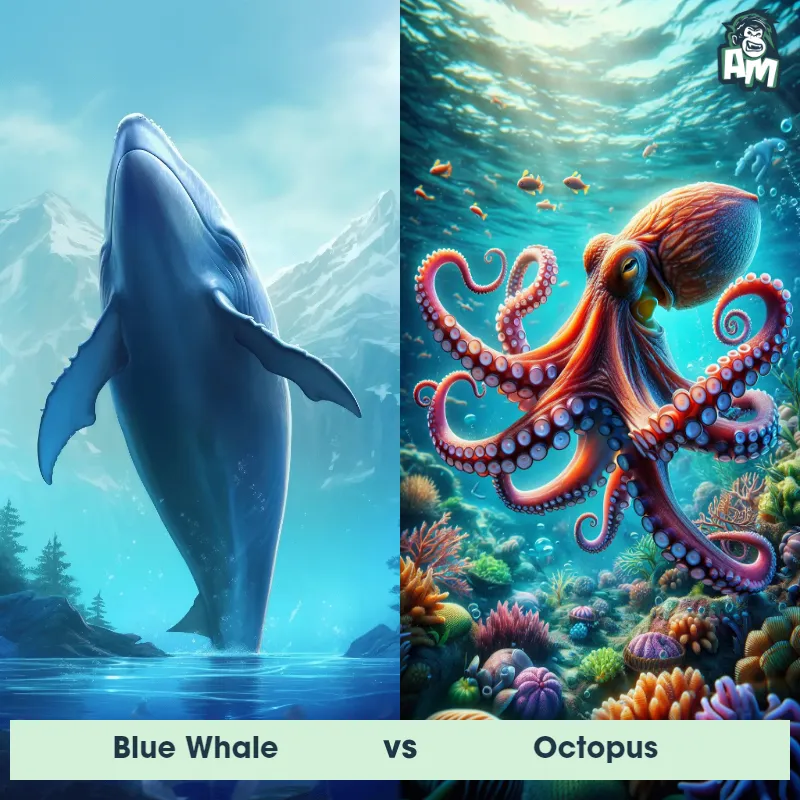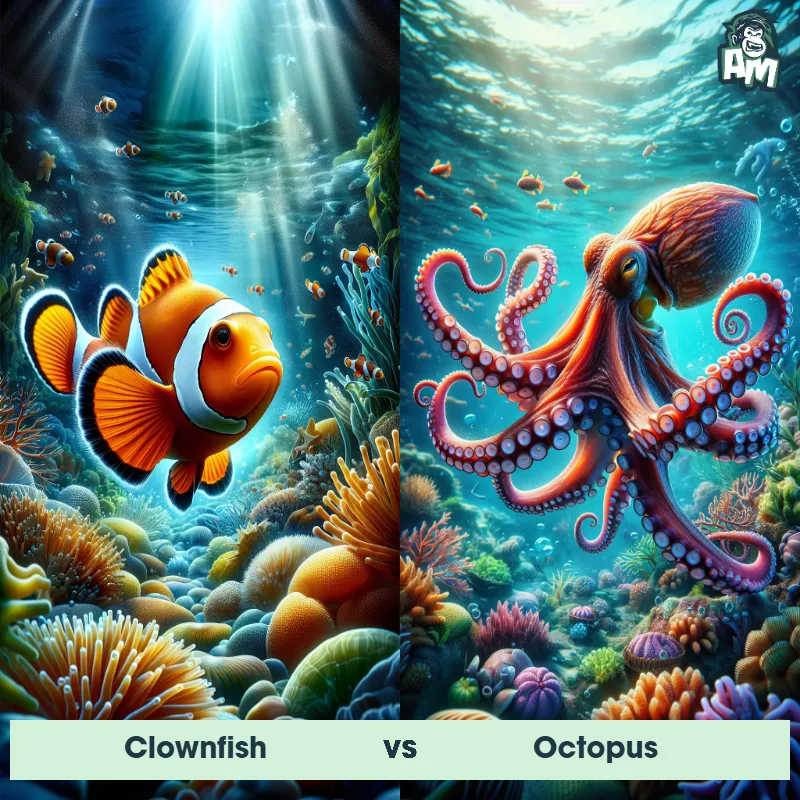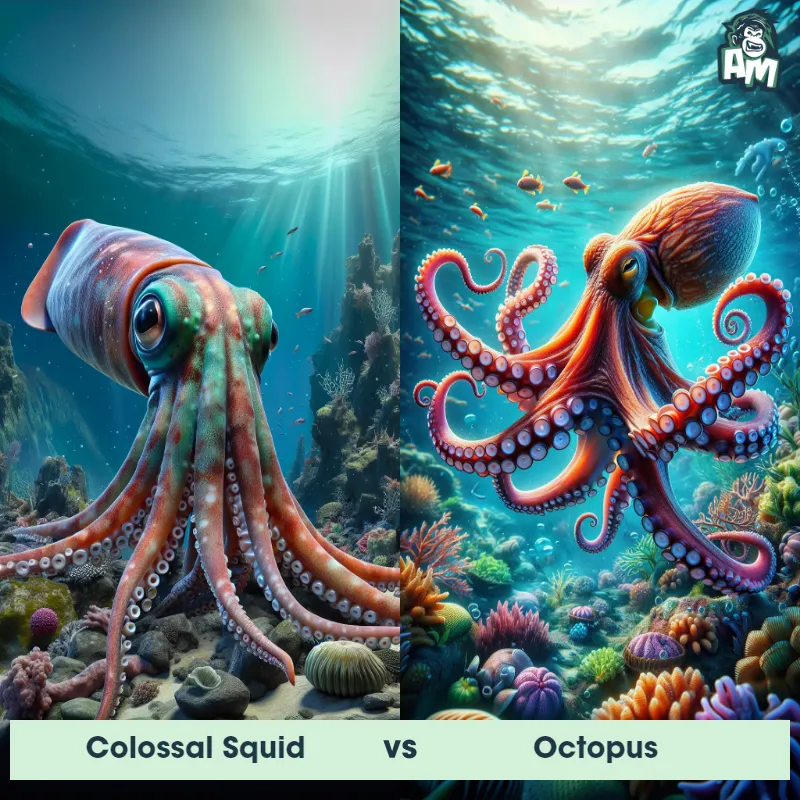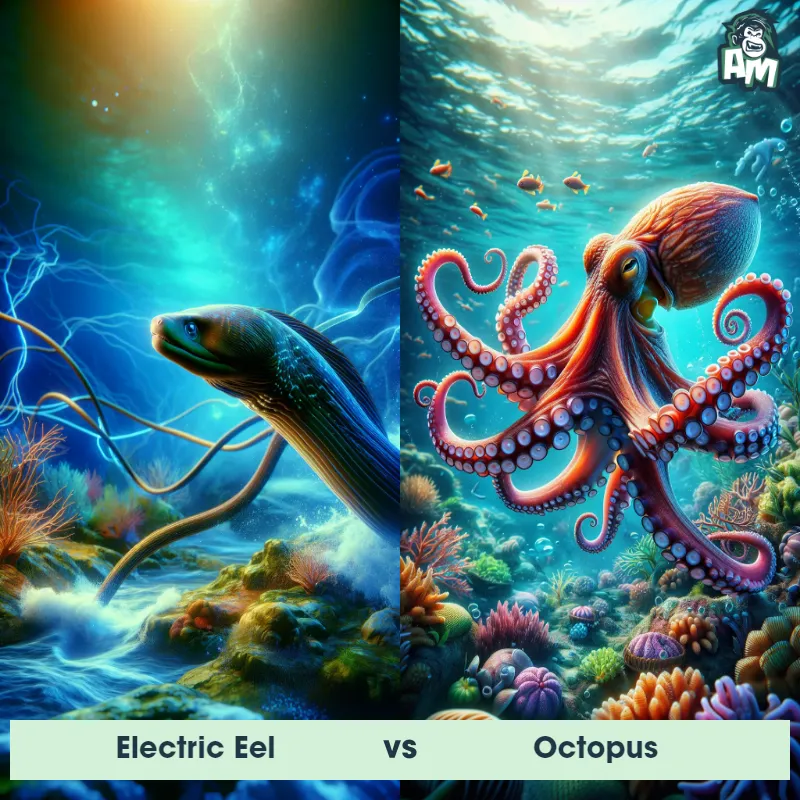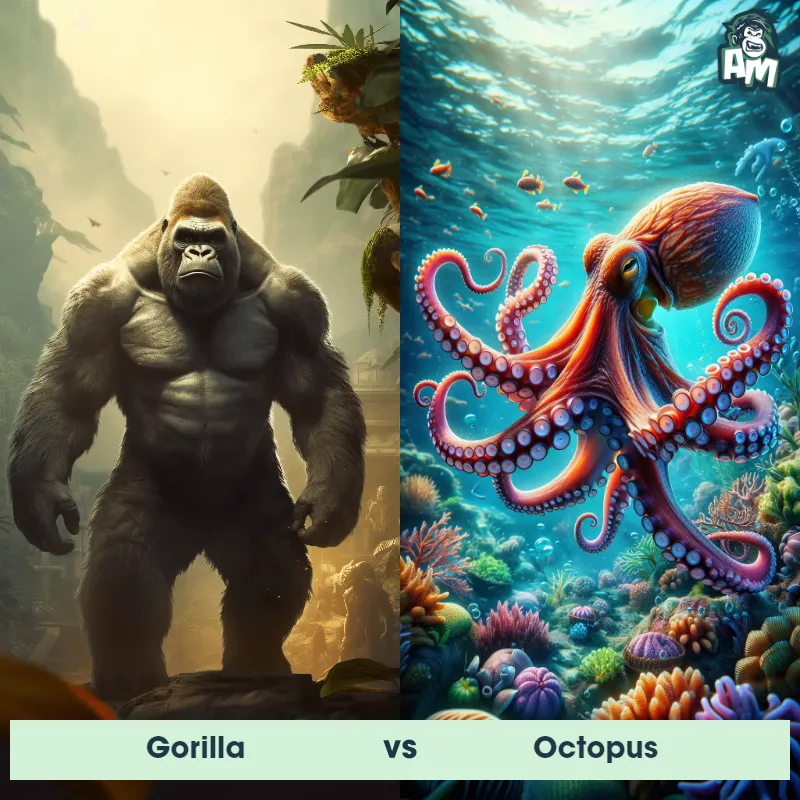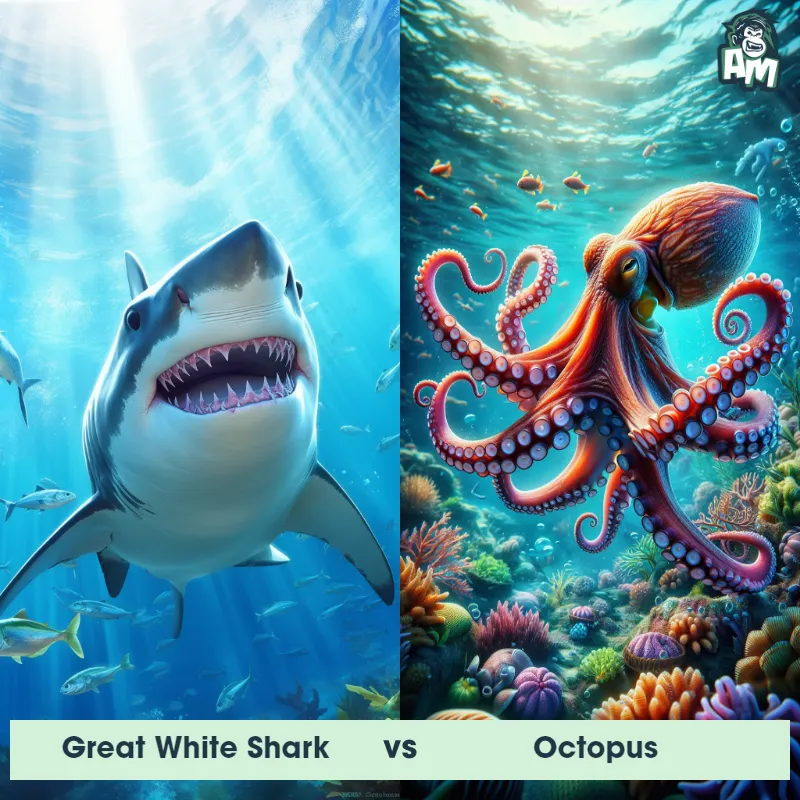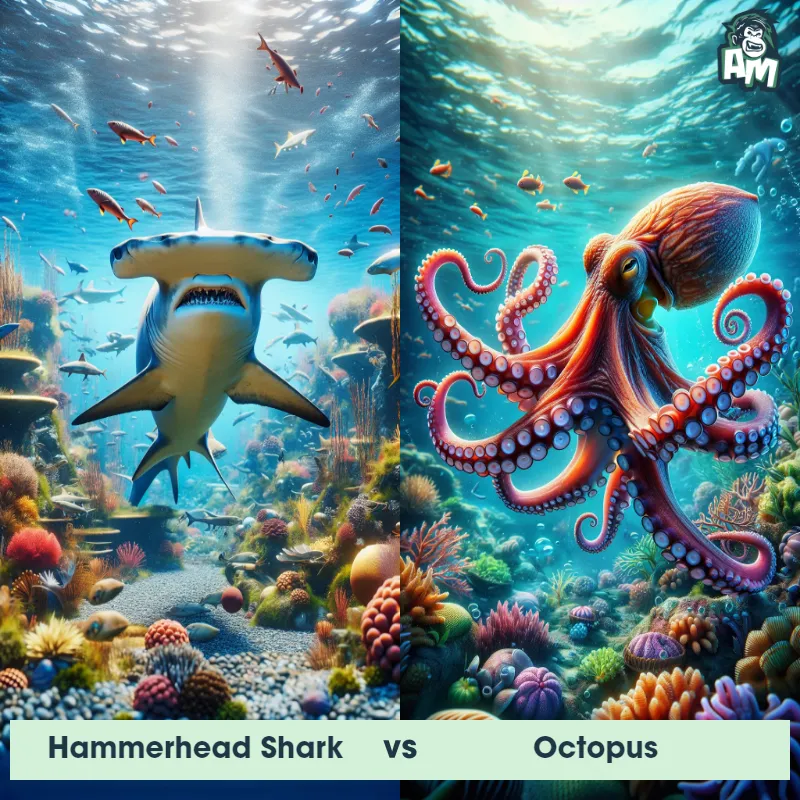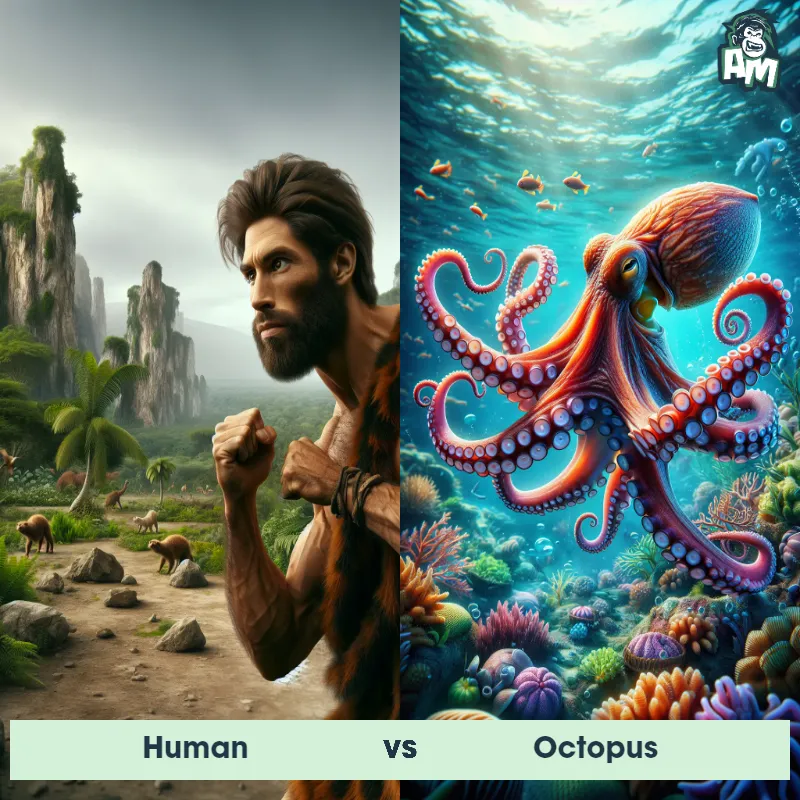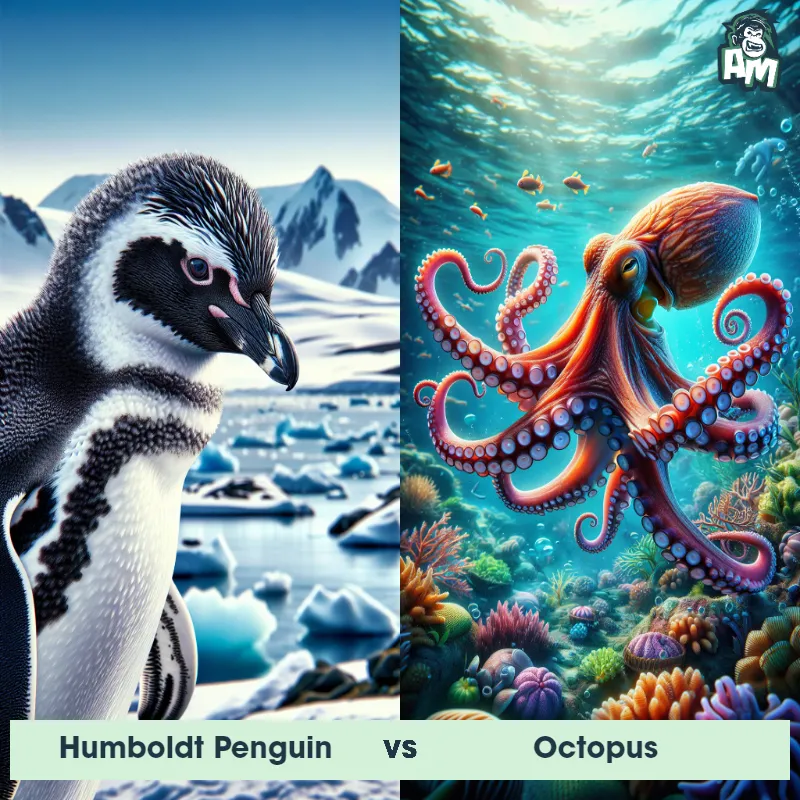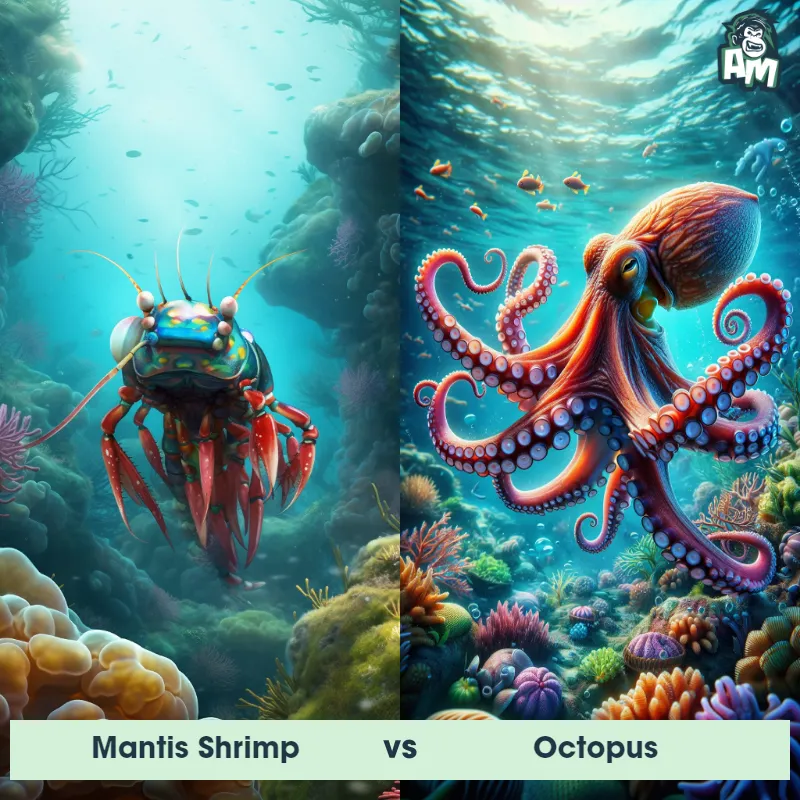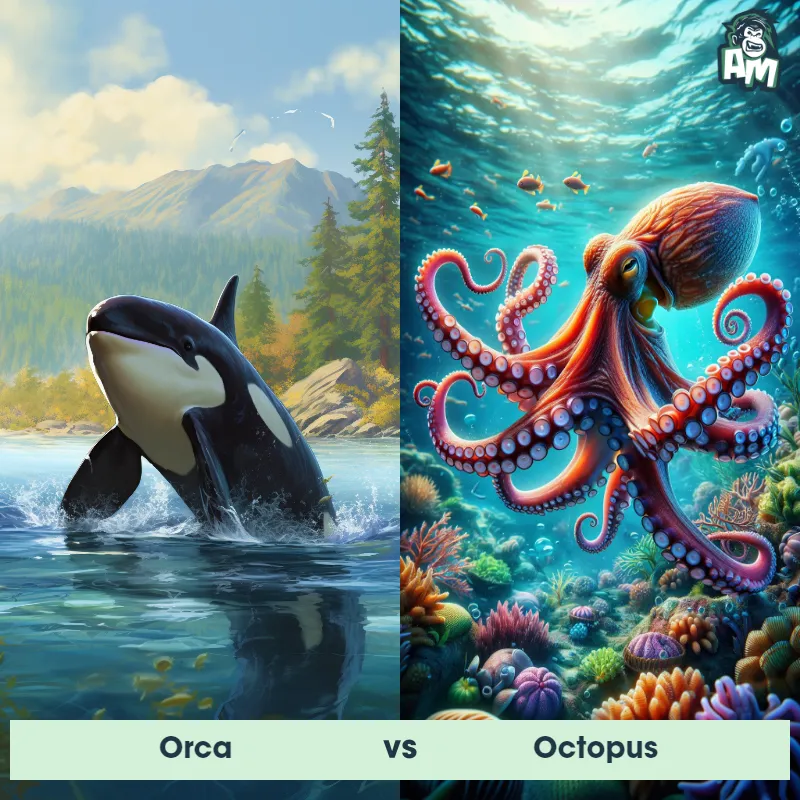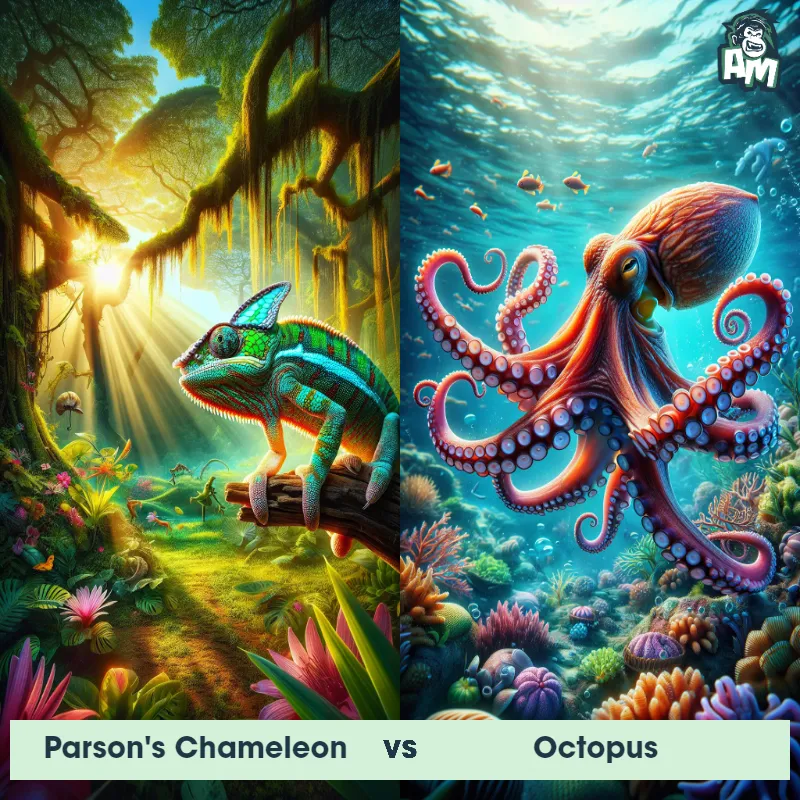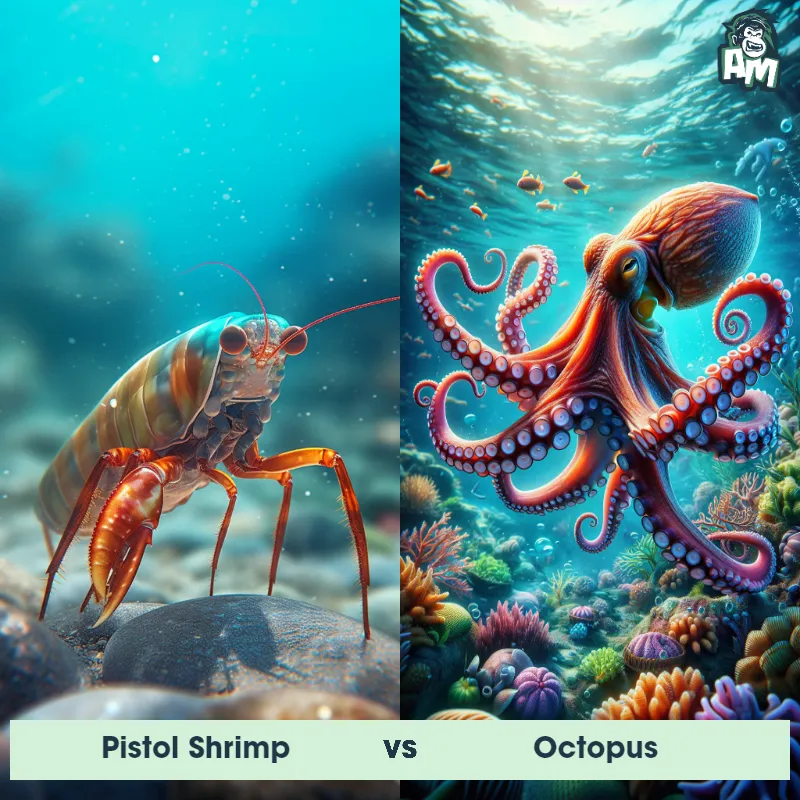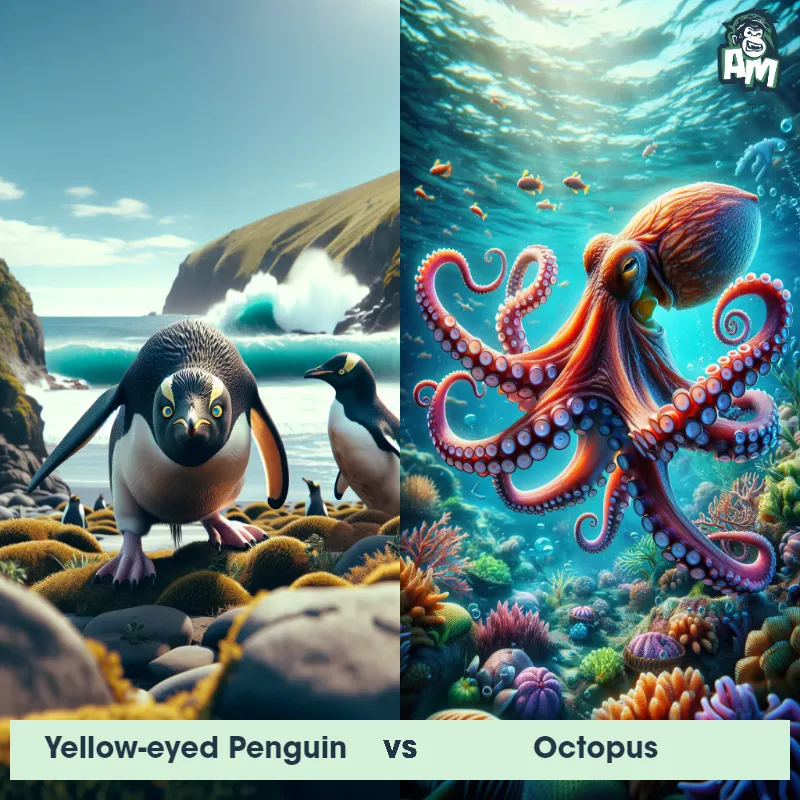The Octopus
The octopus is a fascinating marine creature known for its unique appearance and remarkable intelligence. With its soft body and eight long tentacles, the octopus is easily recognizable. It belongs to a group of animals called cephalopods, which also includes squid and cuttlefish. Octopuses have the ability to change the color and texture of their skin, allowing them to camouflage effectively in their surroundings. They have large brains and can solve puzzles, make use of tools, and even exhibit short-term memory, making them one of the most intelligent invertebrates in the world.
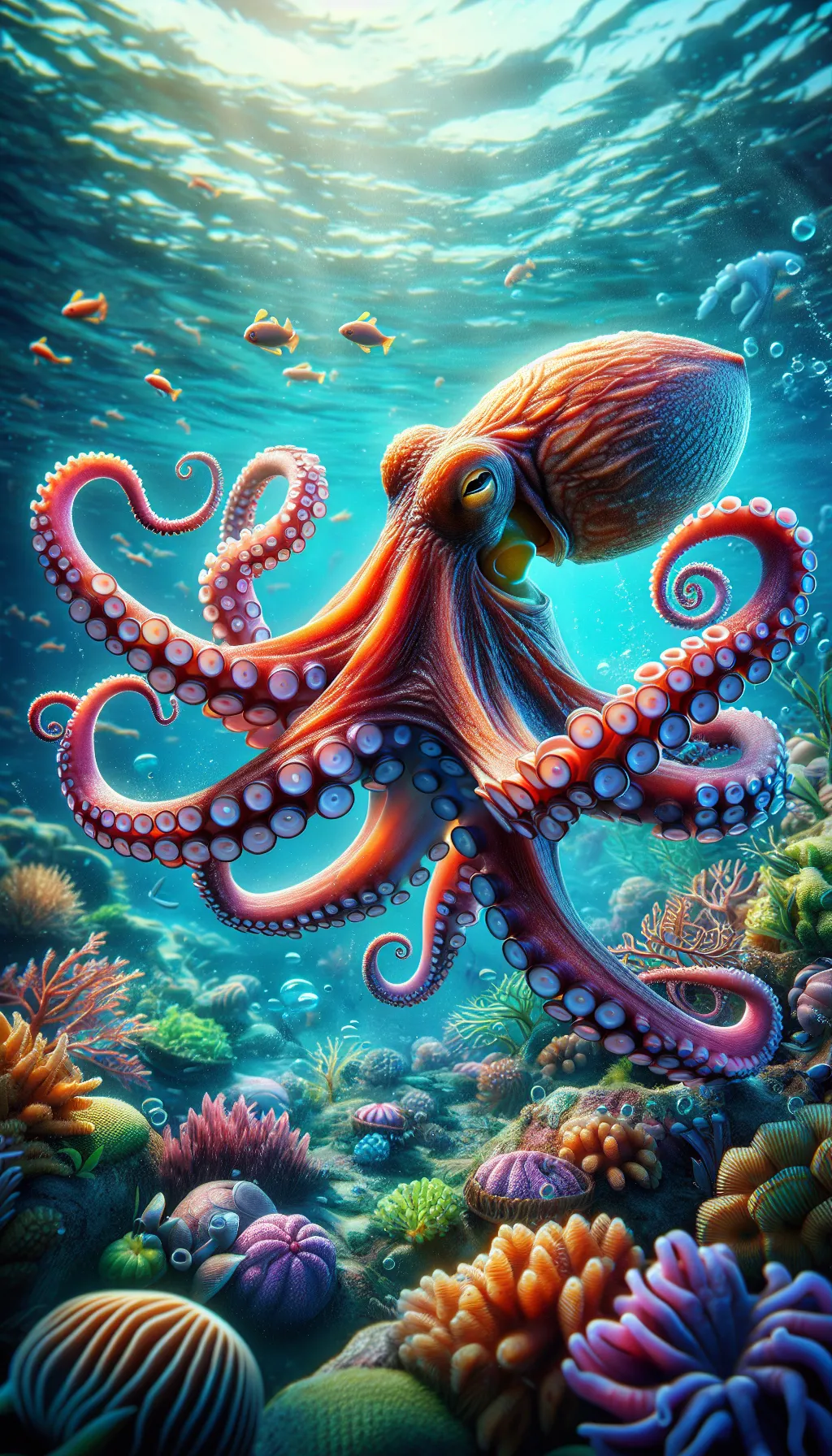
| Octopus | |
|---|---|
| Size | 6–24 inches (15–60 cm) in body length; arms up to 13 feet (4 m) span |
| Weight | 0.05 to 600 pounds (0.02–272 kilograms) |
| Speed | 25mph (40km/h) |
| Key Strength | High intelligence, ability to change skin color and texture for camouflage, and use of ink for defense |
| Biggest Weakness | Soft body with no skeletal structure, making them vulnerable to larger predators |
| Scientific Name | Octopoda |
| Family | Octopodidae |
| Habitat | Marine environments, from shallow coastal waters to deep-sea trenches |
| Geography | Worldwide, in all oceans |
| Diet | Carnivorous, feeding mainly on crabs, shrimp, and other small sea creatures |
| Lifespan | 1 year - 5 years |

The Octopus
The octopus is a fascinating marine creature known for its unique appearance and remarkable intelligence. With its soft body and eight long tentacles, the octopus is easily recognizable. It belongs to a group of animals called cephalopods, which also includes squid and cuttlefish. Octopuses have the ability to change the color and texture of their skin, allowing them to camouflage effectively in their surroundings. They have large brains and can solve puzzles, make use of tools, and even exhibit short-term memory, making them one of the most intelligent invertebrates in the world.
Fun Fact: One fun fact about the octopus is that it has three hearts! These hearts serve different functions, with two hearts pumping blood to the gills, while the third heart circulates oxygenated blood to the body.
| Octopus | |
|---|---|
| Size | 6–24 inches (15–60 cm) in body length; arms up to 13 feet (4 m) span |
| Weight | 0.05 to 600 pounds (0.02–272 kilograms) |
| Speed | 25mph (40km/h) |
| Key Strength | High intelligence, ability to change skin color and texture for camouflage, and use of ink for defense |
| Biggest Weakness | Soft body with no skeletal structure, making them vulnerable to larger predators |
| Scientific Name | Octopoda |
| Family | Octopodidae |
| Habitat | Marine environments, from shallow coastal waters to deep-sea trenches |
| Geography | Worldwide, in all oceans |
| Diet | Carnivorous, feeding mainly on crabs, shrimp, and other small sea creatures |
| Lifespan | 1 year - 5 years |
Octopus Matchups
We use AI to simulate matchups between the Octopus and other animals. Our simulation considers size, strength, and natural predatory behaviors to determine the most likely outcome.

Can't find the Matchup you want?
Create Your Own MatchupOctopus: Diet, Predators, Aggression, and Defensive Behaviors
What do Octopuses eat?
Octopuses are carnivorous creatures that primarily feed on crabs, shrimp, and other crustaceans. They use their powerful arms to capture and subdue their prey before using their beak to break through the shell or exoskeleton to access the soft tissue inside. Some larger species of octopuses have been known to prey on fish and even small sharks.
Do Octopuses have any predators?
While adult octopuses have few natural predators due to their camouflaging abilities and defensive strategies, they are still vulnerable to predation by larger marine animals such as sharks, eels, dolphins, and sea otters. In addition, young octopuses are often targeted by various fish, crustaceans, and birds.
Are Octopuses aggressive?
Octopuses are not typically aggressive towards humans unless provoked or threatened. However, they can display territorial aggression towards other octopuses, especially during mating season. When threatened, an octopus may exhibit defensive behaviors such as puffing itself up, changing color to appear more intimidating, or squirting ink to confuse predators.
Do Octopuses fight?
Octopuses are known to engage in physical confrontations with each other, particularly when competing for territory or mating partners. These fights may involve grappling with their arms, attempting to subdue or intimidate their opponent. Despite their lack of bones, octopuses are incredibly strong and have powerful suckers that can leave bruises or marks on their adversaries.
How do Octopuses defend themselves?
Octopuses have several defense mechanisms to protect themselves from predators. Their most well-known tactic is their ability to change color and texture to blend in with their surroundings, allowing them to camouflage and evade detection. In addition, they can expel a cloud of ink to disorient predators, wrap themselves in their arms to appear larger and more intimidating, or release toxic chemicals to deter attackers.
What is the biggest weakness of Octopuses in a fight?
One of the biggest weaknesses of octopuses in a fight is their soft body and lack of an external shell or rigid structure to provide protection. While their camouflage, agility, and defensive strategies can help them escape or avoid confrontations, their delicate bodies make them vulnerable to physical harm from larger predators or aggressive competitors. Additionally, their lack of a centralized brain means that each arm can act independently, potentially leading to conflicts in decision-making during a confrontation.
Fun Fact: Another fun fact about the octopus is its incredible ability to regenerate limbs. If an octopus loses an arm, it can grow it back through a process called autotomy. The lost limb doesn't just simply regrow, but it can also heal itself and function again.
Fun Fact: Octopuses have a remarkable defense mechanism known as "ink clouding." When threatened, they release a dark ink substance into the water, creating a cloud that confuses predators and allows the octopus to quickly escape. This ink contains a compound called melanin, similar to what gives color to our hair and skin.



